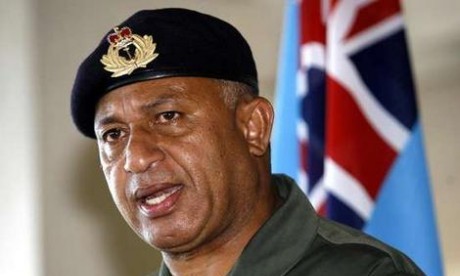Fiji’s military ruler sat behind an imposing wooden desk, deep in thought. This was the most attention he had given to any of the questions posed to him in the interview thus far, and he seemed to be struggling to find an answer. Finally, after a lengthy pause, he said that he could think of only one mistake regarding his seizure of power more than six years ago.
“I wish I had done this in 2001,” he said.
Fiji, a former British colony made up of about 330 islands in the central Pacific Ocean, has been without an elected government since Commodore Josaia Voreqe Bainimarama, also known as Frank Bainimarama, took power in a 2006 coup. It was the country’s fourth putsch since independence in 1970, and he insisted that military rule was the only way to ensure an end to the spasms of political and ethnic violence that have so often destabilized the country. Mr. Bainimarama, who now eschews uniforms for civilian dress, carries the title prime minister and describes his tenure as a cooling-off period before an eventual return to democracy.
Mr. Bainimarama seemed to be keeping his word when, in January, he lifted the state of emergency that had been in place since he abrogated the Constitution in 2009. He then went further in March by announcing public consultations on the drafting of a new Constitution and a return to free elections by 2014, moves that were praised by Australia, the United States and other countries.
But before the ink was dry on the order lifting emergency rule, Mr. Bainimarama had issued sweeping new public order regulations, which many say contain provisions harsher than the laws they replaced. Censors may no longer stalk newsrooms to vet stories before they are published, but editors still risk heavy fines and prison terms if what they publish is deemed objectionable. Political parties and labor unions can hold meetings, but they must first secure permission from the police. Read more
Sources
Additional readingNews category: Features.




